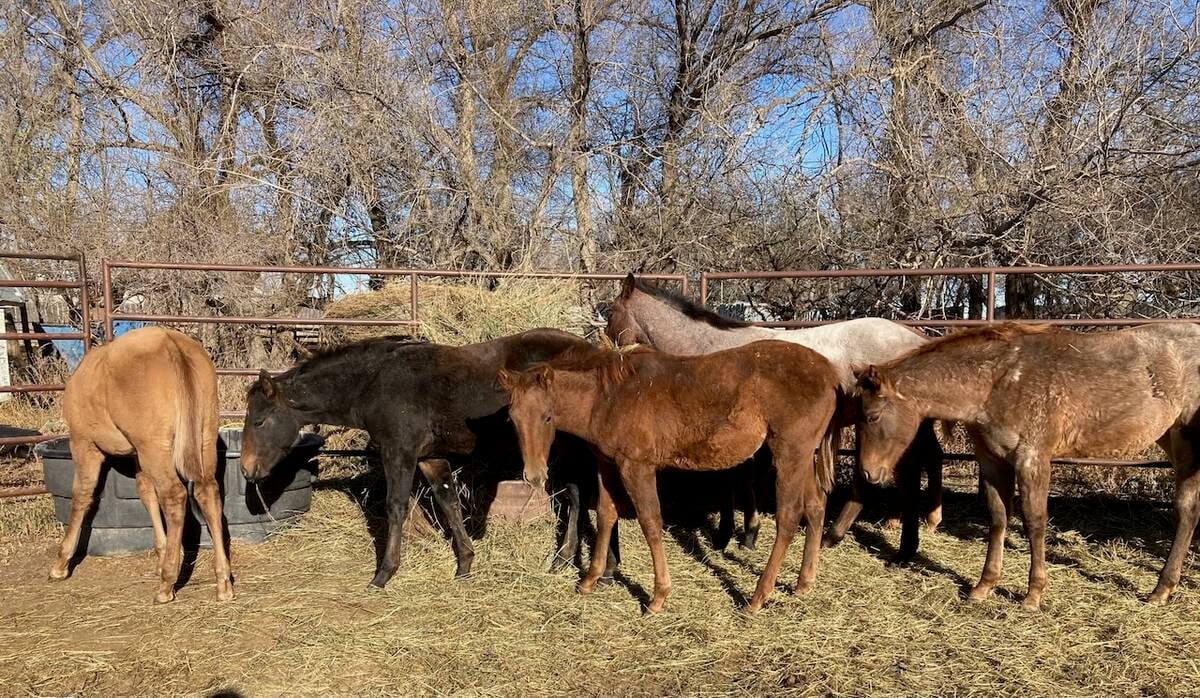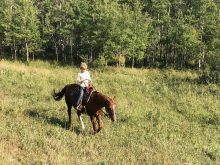Tis the season of farm meetings, where the speakers will talk about business and “keeping the emotion” out of business using data to make concrete decisions. I don’t debate this approach for grain marketing, but I highly doubt stuffing emotions on the farm creates clarity of expectations or happy outcomes.
Recently I met Carolyn Stern, author of The Emotionally Strong Leader: An Inside-Out Journey to Transformational Leadership. I’m wired for positivity and lifelong learning, so I resonate with many of Stern’s insights and wondered what would happen to the farm family dynamic if folks really cared about working on their internal world.
Read Also

Fall clean-up and bringing animals home at the Eppich ranch
Winter is approaching which meant emoving old fence rows and bringing livestock home before the cold and the snow at the Eppich family ranch.
When coaching young farmers in the hallways of a conference in the U.S. Midwest, I was reminded again watching tears of frustration. “Dad just drops the big stuff like switching land rent while we are walking to the barn. I haven’t really had a deep conversation about his passions and wants for over three years. I’ve decided just to build things on my own for my own family, and that way if the emotions and drama run high, we have options.”
Stern uses a self-coaching approach, which strong-willed, independent entrepreneur farmers would love:
Know yourself
“Connect with yourself and take a hard look in the mirror,” Stern says. We all need lots of self-compassion and a no-judgment zone to be able to accept where we are today. Health issues have a brash way of causing folks to reconsider what is truly important in life. Would you be able to sit with your thoughts and feelings just a while to consider how you are aging and managing in place on your farm?
“Understanding your inner self will help you lead more consciously and purposefully,” Stern says. This revelation came to a family meeting when the dad was ready to share the story of the pain and sacrifice of his parents in the tough times of getting the farm started. His fear of failure was a source of concern which only came to light through his story at the family meeting.
Consult with others
Many farmers have few friends, others have lots. I would start with a heart-to-heart conversation with your spouse. Tears flow when the vision of the parent is not aligned for the future chapter of being 70-something on the farm.
Are you courageous enough to ask others how they perceive you? Compare their observations to how you saw yourself in your reflection time. Pay attention to what your spouse needs. Being emotionally present for your spouse will protect the health of the marriage.
Manifest the model
Stern asks, “What kind of emotionally strong leader do you want to be?” — a great question for Stern’s process, but I am afraid many farmers don’t care what others think. They are used to” being large and in charge.” They may not care to consider the opinions or voice of others on the farm team.
If your parents are not willing to consider therapy, counselling or coaching to discover new ways of communicating and resolving conflict on the farm, perhaps that clarity will allow you to let go of unworkable expectations and seek out new options which fit your goals. You can show up as the best version of you and model the kind of behaviour and culture you want to create in your management role.
Consider your possibilities and barriers
A lack of good communication seems to be a common complaint of young farmers trying to get parents to talk about the future of the farm and the family.
Brene Brown, a social researcher and Texas-based podcaster, often asks people to question the stories they tell themselves. I believe everyone can learn new language to share feelings more clearly and ask for what they need. We’d be happy to share a list of podcasts and videos for you to glean new phrases such as “Where is it written that … (fill in the blank the thinking you want to challenge)?” or “I’m just curious, have you considered…?” Play with possibility and don’t pre-judge the outcomes of your robust conversations. Contact us if you’re looking for the podcast links.
Make an action plan
A couple I coached was elated to share what they learned about healthy boundaries from their counsellor. Their intention was to protect the emotional health of their family and model to the parents the good behaviours they wanted to see grow.
We often say, “Counselling is about recovery; coaching is about discovery.” Search the National Farmers Mental Health Alliance website to find ag-informed therapists.
If your parents are on the brink of divorce because their future vision for stepping away from the main roles of the farm are at odds, perhaps a “redemptive separation” is the action plan. Divorce is not the goal, healing emotions is. “Talk does not cook rice.” You need accountability partners, dates and deadlines to work at better communication and emotional awareness in “bite-size chunks,” Stern suggests.
Make the commitment(s)
Commit to building your emotional support group and commit to your growth as an emotionally strong leader. Many farm families get in the habit of working in isolation and neglect connection to community. We need to be purposeful in reaching out to stay motivated to keep growing and transforming our behaviours. Stern advises to “establish accountability to ensure you are focused on your journey to emotional strength.”
Stern’s facial icons are a good reminder to use a larger vocabulary for our feelings. Her emotion check-in list includes positive, happy, optimistic, inspired, empathetic, excited, confident, proud, content, relieved, hopeful, calm, strong and passionate. The negative emotions common to blow-ups on farms might include intimidated, offended, frustrated, discouraged, afraid, resentful, confused, overwhelmed, and disappointed.
Read that passage about the emotion check-in again. Notice how the positive words make you feel; now, think of when you last felt that emotion.
“I love you, my child, and you’ve grown to be a great asset to our farm, and I am proud of you and all you have accomplished. I’m optimistic for the future of this business and the legacy we are creating together.” Many young farmers would love to hear this spoken aloud, and the reverse is true for farm parents. Respect, positivity and appreciation go a long way to build emotional health.
Do you have a clear picture of who you are and how you lead on your farm? In your family?
Awareness is a good first step. Read Stern’s book or listen on Audible. You’ll enjoy her tips and tools to gain emotional strength.
















